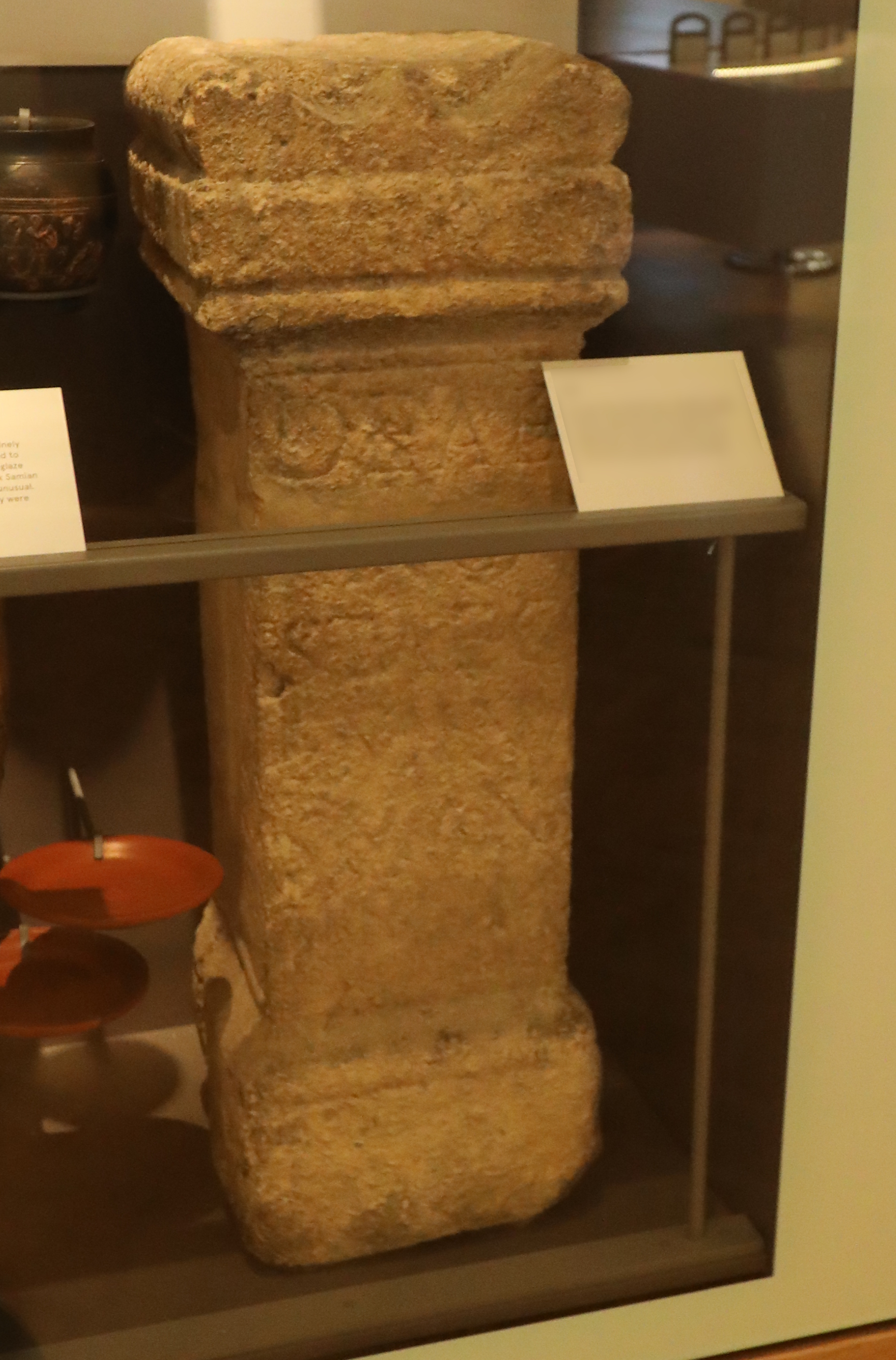Ancasta on:
[Wikipedia]
[Google]
[Amazon]
 Ancasta was a
Ancasta was a
Proto-Celtic—English lexicon
" (See als
this page
for background and disclaimers.) The inscription is now in the SeaCity Museum.Clausentum
Pastscape, retrieved 13 January 2012 It was previous in the museum at God's House Tower.
Celtic goddess
The gods and goddesses of the pre-Christian Celtic peoples are known from a variety of sources, including ancient places of worship, statues, engravings, cult objects and place or personal names. The ancient Celts appear to have had a pantheon ...
worshipped in Roman Britain
Roman Britain was the period in classical antiquity when large parts of the island of Great Britain were under occupation by the Roman Empire. The occupation lasted from AD 43 to AD 410. During that time, the territory conquered wa ...
. She is known from a single dedicatory inscription found in the United Kingdom
The United Kingdom of Great Britain and Northern Ireland, commonly known as the United Kingdom (UK) or Britain, is a country in Europe, off the north-western coast of the European mainland, continental mainland. It comprises England, Scotlan ...
at the Roman settlement of ''Clausentum
Clausentum was a small town in the Roman province of Britannia. The site is believed to be located in Bitterne Manor, which is now a suburb of Southampton.
Identification
Route VII of the Antonine Itinerary documents the Roman settlement of Clau ...
'' (Bitterne
Bitterne is an eastern suburb and ward of Southampton, England.
Bitterne derives its name not from the similarly named bird, the bittern, but probably from the bend in the River Itchen; the Old English words ''byht'' and ''ærn'' together mean ...
, near Southampton
Southampton () is a port city in the ceremonial county of Hampshire in southern England. It is located approximately south-west of London and west of Portsmouth. The city forms part of the South Hampshire built-up area, which also covers Po ...
). Ancasta may be taken to be a local goddess, possibly associated with the nearby River Itchen.
The votive dedication to Ancasta reads:
:DEAE ANCASTAE GEMINVS MANI VSLM
:"To the goddess Ancasta, Geminus Mani iuswillingly and deservedly fulfills his vow."
It may be possible that the name 'Ancasta' is related to Proto-Celtic
Proto-Celtic, or Common Celtic, is the ancestral proto-language of all known Celtic languages, and a descendant of Proto-Indo-European. It is not attested in writing but has been partly reconstructed through the comparative method. Proto-Celti ...
''*kasto-'' meaning 'swift'.Centre for Advanced Welsh and Celtic Studies, University of Wales
, latin_name =
, image =
, caption = Coat of Arms
, motto = cy, Goreu Awen Gwirionedd
, mottoeng = The Best Inspiration is Truth
, established =
,
, type = Confederal, non-member ...
.Proto-Celtic—English lexicon
" (See als
this page
for background and disclaimers.) The inscription is now in the SeaCity Museum.Clausentum
Pastscape, retrieved 13 January 2012 It was previous in the museum at God's House Tower.
References